iPhone or Samsung: Which Smartphone Should You Choose in 2024?
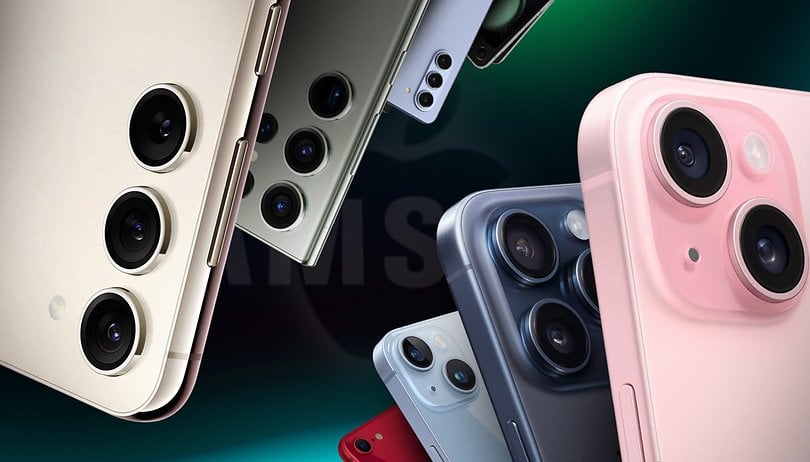

iPhone or Samsung Galaxy? This is the question that many of us ask today. Samsung with its Galaxy S24 and Apple with its iPhone 16 both offer good smartphones that are difficult to choose when it comes down to the crunch. In this product comparison, we'll review not just the latest devices, but also their operating systems and ecosystems. Let's dive in: Galaxy or iPhone?
Which is better, Apple or Samsung? While both provide full ecosystems, including products, online services, and unique operating systems, this isn't just about personal preference. This article aims to help you choose wisely for your next smartphone purchase.
iPhone or Samsung: Catalog range and prices
Apple is known to be very different from its competitors. While brands like Oppo or Xiaomi have confusing ranges with plenty of the models having almost identical specifications, the Cupertino giant has always insisted on having the leanest catalog possible. Thus, this year is no different with nine models on offer in its store.
The iPhone 15 launch ditched the 13 mini variant. Going forward, Apple will rely on the Plus, Pro, and Pro Max models in addition to the base model.
Samsung's advantages over Apple:
- Huge catalog of devices.
- More affordable handsets.
Apple's advantages over Samsung:
- Clearly defined product range.
- Older models are still competitive in terms of features and performance.
A few years ago, the number of products from Apple's smartphone line increased a little, with the addition of the mini model. Since then, the mini was replaced by the big Plus model, and Apple has kept the two previous-generation models as a cheaper alternative. Even so, the iPhone product range is the smallest among the top five smartphone manufacturers today.
iPhone catalog and prices
As mentioned earlier, Apple's 2024 catalog includes nine models, four of which were launched in 2024, two from 2023, and three in 2022. In addition to the new iPhone 16, Apple also retains the iPhone 15, 15 Plus, 14, 14 Plus, and iPhone SE (2022) in its lineup.
All current iPhones compared:
All nine models are 5G-compatible. In addition, all models, except the iPhone SE (2022), have an OLED display.
Samsung's smartphone catalog and prices
While you can count the iPhones in 2024 on your own fingers (with two hands, of course), Samsung's catalog is far more extensive. It begins with inexpensive entry-level smartphones and goes all the way to expensive foldables with top-notch hardware.
Samsung's line of smartphones is made up of the Galaxy family, which also includes wearables, headsets, tablets, notebooks, and other gadgets. The family is divided into categories such as:
- Galaxy Z (foldable phones)
- Galaxy S (premium handsets)
- Galaxy A and M (entry-level and mid-range models)
- Galaxy XCover (rugged handsets that target the corporate segment)
All current Galaxy compared:
| Editor's choice | Big-screened S24 | Compact flagship | 2024 foldable flagship | 2024 compact foldable | Affordable flagship | The popular mid-ranger | ||
|---|---|---|---|---|---|---|---|---|
| Product | ||||||||
| Picture | 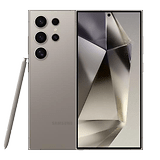 |
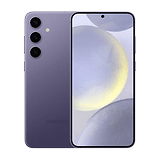 |
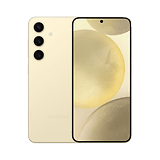 |
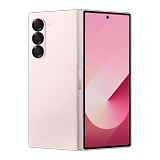 |
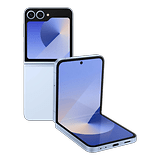 |
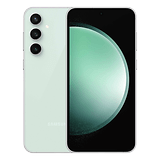 |
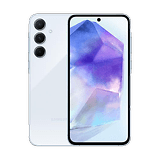 |
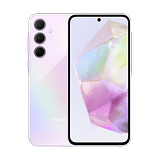 |
| Review |
|
|
|
|
|
|
|
|
| Display |
|
|
|
|
|
|
|
|
| SoC |
|
|
|
|
|
|
|
|
| Memory |
|
|
|
|
|
|
|
|
| OS |
|
|
|
|
|
|
|
|
| Camera |
|
|
|
|
|
|
|
|
| Selfie Camera |
|
|
|
|
|
|
|
|
| Battery |
|
|
|
|
|
|
|
|
| Connectivity |
|
|
|
|
|
|
|
|
| IP Certification |
|
|
|
|
|
|
|
|
| Dimensions and weight |
|
|
|
|
|
|
|
|
| Offers* |
|
|
|
|
|
|
|
|
Since Apple doesn't offer entry-level and mid-range smartphones, the Galaxy A, M, and XCover ranges do not compete directly with the brand's models. Therefore, for this comparison, we have only considered models that are in the same price range as the iPhone range sold by Apple.
There are also no foldable iPhones, despite years of rumors to the contrary, making the Galaxy Z range compete only with its Android peers.
In 2024, the pricing argument is not as relevant as it used to be, as Samsung is marketing smartphones that are almost as expensive as Apple's. However, while the prices of Apple's models usually remain stable until a new generation is released, Samsung's smartphone prices normally drop far too soon after their release. This makes the iPhone a pretty good purchase by any standard.
This has an impact on the depreciation and resale price of its devices, in the case of iPhones, as they normally receive new operating system versions and security updates for a longer period of time, a gap something which Samsung has been trying to narrow recently.
iPhone or Samsung: The hardware
Let's say it right from the start, Apple is clearly not a champion when it comes to value for money. The Cupertino-based company is known for offering smartphones that don't push the envelope when it comes to new technologies as their competitors but at higher prices.
As for Samsung, even if prices have risen lately to approach those of Apple, the brand strives to offer the latest technological innovations in each new generation of flagships.
For example, if we were to compare the technical specifications of the latest "vanilla" flagships of Apple and Samsung, i.e. the Galaxy S24 and the iPhone 15, we can clearly see that Samsung offers a much more interesting smartphone, whether it is the screen, camera, or the fast charging capability.
However, we have to admit that the technical specifications are not everything, and that shows with the software optimization performed on the Apple iPhone. However, it is remarkable that Apple has lowered its prices compared to last year, at least in Europe. Thus, the iPhone 15 is exactly as expensive/cheap as the Galaxy S23/S24, at least when one looks at the respective recommended retail prices.
Apple iPhone 15 vs Samsung Galaxy S24
| Apple | Samsung | |
|---|---|---|
| Product | ||
| Image | 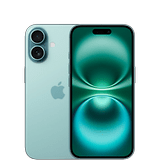 |
 |
| 128 GB | $799 | $800 |
| 256 GB | $899 | $860 |
| 512 GB | $1099 | - |
| Offers* |
|
|
Apple iPhone 15 Pro Max vs. Samsung Galaxy S24 Ultra
| Apple | Samsung | |
|---|---|---|
| Product | ||
| Figure | 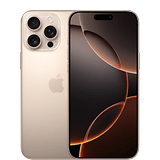 |
 |
| 256 GB | $1200 | $1300 |
| 512 GB | $1400 | $1420 |
| 1 TB | $1600 | $1660 |
| Offers* |
|
|
After adopting the 120 Hz refresh rate with its ProMotion mode in 2021, Apple marked the occasion in 2022 with a new camera as well as a replacement for the notch, calling it Dynamic Island. In 2023, USB Type-C ports were finally introduced for all new iPhones.
For 2024, the biggest change is the Camera Control button which not only allows for dual-stage press to focus but also serves as a shortcut for camera settings. Also, the Action Button arrived on the base models after a 1-year exclusivity to the Pro models. Another upgrade on the base iPhone 16 is an increase in RAM to 8 GB, matching the Pro models in preparation for the memory requirements for AI features.
While Samsung stands out with superlative figures in its extravagant specs, Apple's strong point would be the integration of its components, especially its SoCs. Apple's iPhones are regularly the most powerful on the market, and the brand does not hesitate to show it by comparing its SoCs with the competition.
For instance, the A16 Bionic is said to be 40% more powerful than its direct competitor on Android (the Snapdragon 8 Gen 2 that has been adapted as 'For Galaxy'). We will update the following comparison with tests from the iPhone 16 as soon as we get the phones.
iPhone 15 vs. Samsung Galaxy S23 & S24
| Test | iPhone 15 (A16) | Galaxy S24 (Snapdragon) | Galaxy S24 (Exynos) | Galaxy S23 FE |
|---|---|---|---|---|
| Geekbench |
Single: 2,623 Multi: 6,605 |
Single: 2,252 Multi: 7,107 |
Single: 2,131 Multi: 6,676 |
Single: 1,614 Multi: 4,073 |
| Wild Life Extreme Stress Test |
Best Loop: 3,253 Worst Loop: 2,271 |
Best Loop: 5,160 Worst Loop: 2,637 |
Best Loop: 4,242 Worst Loop: 2,637 |
Best Loop: 2,370 Worst Loop: 1,809 |
In short, the best smartphone is not necessarily the one with the best technical specifications because having the latest fashionable components is not always enough. This is also true for the price because the most expensive flagship is not always the best. However, the 128 GB iPhone 16 is similarly priced to the Samsung Galaxy S23/S24, but not drastically better.
At the top end of the market, Apple and Samsung offer more or less the same. It is especially stark in the mid-range that Samsung has a clear advantage since Apple is not well-represented in that segment at all. And where does the iPhone SE 2022 stand in all this? I don't really consider it a mid-range/entry-level device like the Galaxy A55, so it is a moot point.
Conclusion
Samsung's advantages over Apple:
- More advanced specifications.
- A powerful and more affordable mid-range device.
- Better screens for all its smartphones.
Apple's advantages over Samsung:
- Not excessively higher prices at the top of the range segment.
- Performance is often better than the technical specifications suggest.
- The most powerful smartphones on the market, all brands included.
iPhone or Samsung: The user interface
The user interface has always been Apple's strong point in its battle against Samsung. iOS is praised for its good optimization and its almost perfect integration with the Apple ecosystem. By buying an iPhone, you will benefit from the successful interconnectivity between the different Apple products.
On the other hand, over the years, Samsung has caught up with Apple and now offers an ecosystem that while not as well-developed, is still functional and efficient. Thanks to elements such as your Samsung account, SmartThings, or even exclusive features for its devices such as DeX mode, Samsung tries to offer a similar experience to Apple but with a slightly less closed ecosystem.
These days, Apple and Samsung are moving in similar directions, and users from both camps can enjoy a great software experience on either brand's products.
This year, depending on whether you choose an iPhone or a Galaxy, you'll be integrating with iOS 18 or One UI 6. Both operating systems offer well-thought-out user experiences that are quite popular with fans of each side.
Released in September 2024, iOS 18 extends the customization options, making it easy to ruin your home screen just like on Android. Big updates to the Control Center to rearrange, add, and resize widgets, live audio transcriptions on the Notes app, and more control and easier management of privacy settings.
And of course, not one to skip on the latest tech trend, AI ("Apple Intelligence" here) promises improvements to Siri, text writing, photos organization, and more. However, most of the new AI features on iOS 18 are scheduled to arrive in later point releases, starting with iOS 18.1.
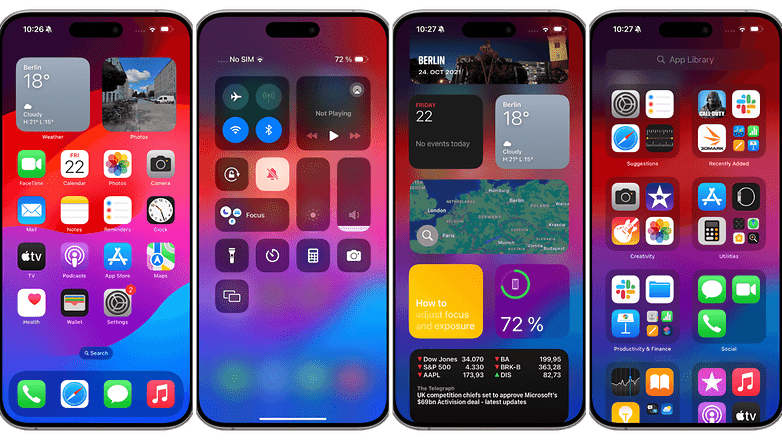
Apple has thus caught up with Android and as usual, the Cupertino company has taken its time but has managed to implement in a very appreciable way, features that have been available on Android for a while.
As for One UI, it's one of the most popular Android skins, along with Xiaomi's MIUI. For example, it is more widely used than stock Android, Google's original Android interface. Visually, One UI is quite a departure from stock Android and is a rather heavy skin, but it is very complete.
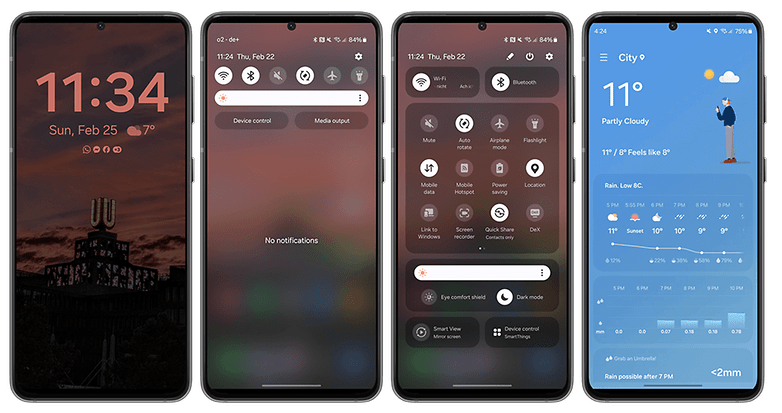
Samsung's One UI offers a good multitasking experience thanks to features like split screen, floating windows, or the ability to clone applications to have two accounts. To learn more about its features, read our full One UI 6 review.
iOS and One UI are starting to get more and more similar, so the final choice will ultimately boil down to your personal preferences. Note, however, that iOS is exclusive to Apple while One UI depends on Android updates, so you will not receive the latest version as quickly on a Samsung compared to an Apple iPhone.
Both the recently launched iOS 18 and Android 15 are rather light when it comes to big changes to the user interface, mostly continuing to evolve the available customization options while also improving on security and privacy controls. For more details on what changed with the latest updates, check our overview pages:
- The best iOS tips & tricks
- Everything you need to know about Android 14
- All the new features coming with Android 15
Conclusion
Samsung's advantages over Apple:
- More customizable interface.
- Much more advanced multitasking optimization.
Apple's advantages over Samsung:
- Smooth and seamless experience within the Apple ecosystem.
- Very high data security.
- High-quality native applications.
- More frequent security updates throughout its entire phone line.
- Clear and uncluttered design.
iPhone or Samsung: Update policy
The update policy was one of the main selling points of Apple's iPhones, but over the years, Samsung has also been able to improve on this aspect by reducing the gap. The iPhone is generally kept up-to-date for five years, and all models receive the update almost at the same time. Samsung now promises seven years of features and security updates for its Galaxy S24 phones, with 4 years of Android updates and 5 years of security patches for its 2023 flagships.
Apple's update policy
According to the official Apple page, we can see that iOS 18, for example, is available for even the iPhone XS which was released in 2018. These models have therefore received 5 iOS versions since their launch (not counting the version present by default at release). Until 2023, no Android manufacturer offered such extensive software maintenance.

The graph above illustrates this gap quite well, although the methodology used to count the duration of software maintenance is erroneous. Indeed, the graph assumes that one year is equivalent to one update. This works for iPhones since each new model is released at the same time as each new (major) version of iOS. But for Samsung, its flagships are launched at the beginning of the year with the previous year's Android version and then updated within the same year once a new Android version is released.
Samsung's update policy
Recently, Samsung has made great strides with its update policy. While most Android manufacturers are content to offer 2 or rarely 3 versions of Android and 3 years of security patches, the South Korean manufacturer promises for its flagship S and Z 2024 models seven years of Android upgrades and security patches, with 4 years of Android updates and 5 years of security patches for its previous high-end smartphones.
In practice, the South Koreans promise that the Galaxy S24 will receive "Android 21" in 2031, while its S23 predecessor will top at 2026's version of Android (presumably Android 17). Intermediate phones in the Galaxy A family launched after 2023 are also scheduled to receive five years of security updates, while entry-level models will be supported for four years.
Cheaper Samsung smartphones launched in 2024 are covered with four or five years of security updates, with a shorter promise for OneUI/Android updates.
Conclusion
- With the Galaxy S24 models, Samsung essentially matched the best-supported iPhone models when it comes to feature updates.
- However, some iPhone models received security updates after seven years of launch in extraordinary cases.
iPhone or Samsung: Data protection
iOS is more secure than Android, that's a fact. Data protection is one of the points where Apple is ahead of Samsung, but it should be noted that recently, thanks in particular to the advances of Android 12 in terms of data security, the gap has narrowed.
When it comes to security, the number of criteria to be considered is far too large for the scope of this article. That's why I've limited myself to the privacy and security features of each manufacturer.
Samsung's privacy features
One UI 4 briefly introduced the new features found in Android 12, including the new privacy controls. The privacy panel is accessible from the privacy menu, and like iOS 15 (and MIUI before both), you'll be notified whenever apps use features like geolocation, camera, and microphone.
Not immediately enabling background activation of geolocation is also a plus. It must be performed from the page dedicated to the application in question from the system settings. Additional steps that are supposed to discourage or at least make you think twice before letting an application track you even while you are not using it make things safer.
Scoped storage (launched on Android 10) which allows you to compartmentalize data based on the different applications was interesting. This means one app has access to a particular silo without another app sharing the same space. In practical terms, this limits app access to only a few folders in internal storage, so apps can't see your other files.
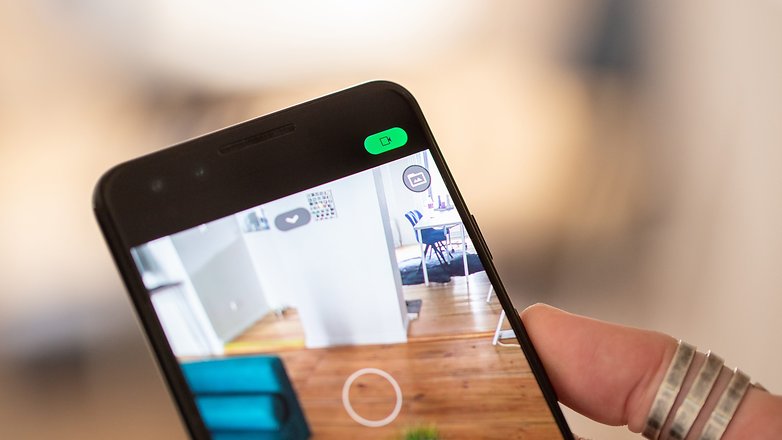
For file managers, One UI 4 has brought a new permission "Access to all files", which allows them to work as in previous versions. However, the application must meet certain conditions to receive this permission. All other applications are limited to "Access to media only".
One UI also allows you to give only your approximate location. So when an app first asks for permission to access your location, in addition to choosing when the location can be shared, you will be able to choose not to share your precise location. However, the application will be able to request permission to access the precise location for a given purpose later.
Samsung also offers its Secret Folder which allows you to store all your photos, videos, files, applications, and data away from prying eyes in a folder secured by a password or the fingerprint sensor. This folder is protected by Samsung Knox which guarantees that your data is protected against any malicious attacks.
Also, One UI offers a handy feature in the Samsung browser. Indeed, Samsung Internet automatically starts in private browsing mode if you have used this mode during your last browsing.
Apple's privacy features
Apple has also put a lot of emphasis on security recently with the ATT or App Tracking Transparency, which strictly controls the access of third-party and native applications to your personal data. You can learn more by reading our tutorial which shows how to activate the ATT function on your iPhone.
iOS 15 introduced several other new privacy-related features. I invite you to read our full guide to iOS 15 to learn more about it if you haven't already.
With iOS 16, Apple has continued its momentum by launching Safety Check and automatic verification. With Safety Check, Apple wants to offer more control to users who share passwords or access certain apps and data like geolocation. Safety Check helps combat abuse in toxic relationships by quickly revoking access to data and the location that was previously shared with others.
Automatic verification is a new feature from Apple that bypasses CAPTCHAs, those annoying verification tools that make sure you're not a robot. To achieve this, iCloud automatically verifies your Apple ID and device in the background, so you don't have to fill out a Captcha when authenticating to a website or app.
Conclusion
- Both iOS and Android/One UI have come a long way when it comes to data protection. Manufacturers understand that more and more users value it and make it a purchase criterion for their new smartphones.
- But in any case, no matter how much control an interface gives you over your data, the level of threat depends on factors beyond your control, such as the irregularity of updates and the ease and speed with which hackers can exploit vulnerabilities.
- Apple offers more frequent and regular updates for all its devices, a closed ecosystem that is harder to penetrate, and an app store with a stricter verification process. All these factors are still missing in Android. While the balance of power is not as greatly skewed as it was in the past, Apple is still a step above.
iPhone or Samsung: Resale value
When choosing a new smartphone, it's important to bear in mind when you're going to part with it one day. The average user keeps his or her smartphone for 2 to 3 years before reselling it to finance the purchase of its replacement.
According to a study commissioned and published in January 2022 by Bankmycell, Android smartphones shed an average of more than 33% of their value in 2020, compared to about 16% for iPhones. This decline accounts for over 50% of its price for a mid-range/entry-level smartphone.
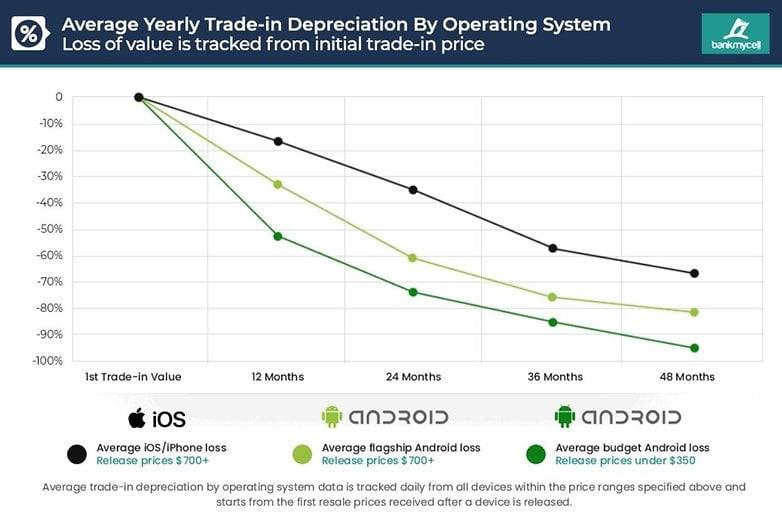
Android smartphones drop in price much faster than iPhones. Indeed, iPhones retain their value better over time than Samsung's Galaxy range. You will be able to resell an iPhone for a far better price than a Galaxy smartphone. However, this is not a bad thing in itself.
To buy the latest Samsung flagship, you usually only have to wait a few months to see its price drop, while to replace your iPhone with the latest model, you have to wait much longer for its price to drop.
- Read also our tutorial on how to resell your old iPhone at the highest price
Conclusion
Advantages of Samsung compared to Apple:
- The possibility to find smartphones at a better price only a few months after their release.
- Flagships experience nice price drops, unlike iPhones.
- The second-hand market forces e-tailers to make promotions regularly.
Advantages of Apple compared to Samsung:
- Possibility to resell your iPhone at a good price one or two years after purchase.
To those who've read through, I hope this Apple vs. Samsung comparison was insightful. Your feedback on this format is welcome, and if you'd like similar guides for other brands, please tell me. I aimed for thoroughness without making it excessively long. If I overlooked or erred on any point, kindly point it out in the comments.
The article was updated in September 2024 with the launch of the iPhone 16 and iOS 18. Comments before the update have been kept and may seem out of context.
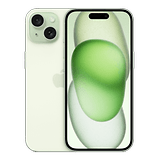
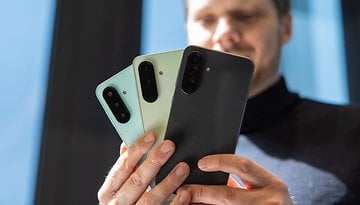






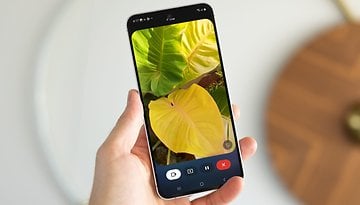
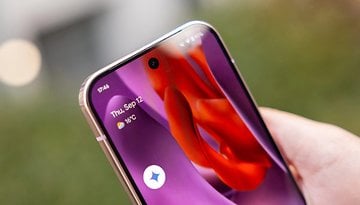




Might make sense to switch to 3DMark Wild Life Extreme, as Wild Life quickly hits the 60 fps limit on modern smartphones. Wild Life Extreme is much more demanding.
In the USA anyway, the duopoly of Apple/Samsung is part of the reasons their prices are higher, and, our choices of phones is "limited". Most people in the USA, still purchase phones from carriers, and if you've ever been in a carrier store, you think you've walked into an Apple or Samsung store. THAT is what they push the most. Oh, you might find a couple of lower tier phones, but the people in the stores push the Apple/Samsung devices, then lock you into a contract.
I grow weary of this dichotomy as the market is much richer and varied than this tired premise.
Still neither. I consider both companies at the leading edge of anti-consumer behavior. Samsung's latest privacy policy debacle front and center.
I was or had the n20u but tht line is done so, now it's the s23u and I'm still good with android it works for me.
Now a days everyone addicted to phone and people attracted towards the new model.
Love this website help me out a lot ?????
I've been using a Huawei P20 Pro for about 2 years now and I'm (still) very happy with it: a good, even very good phone, and the (relatively) higher price was well worth it. If I were in the situation of choosing a new phone and had to choose between iPhone or Samsung, even if I would like another manufacturer(!), but if I had to choose between the 2 big manufacturers, I would still give up Android, so I would prefer an iPhone (which, by the way, would be my first non-Android gadget). The reason would be quite simple: the iPhone is part of an exclusive world, but it offers models with a very long lifespan, old models being perfectly functional despite their age, which I consider a great thing.
I admit that I'm not a real Apple fan, but every time it surprises me with its product developments, which makes me think very seriously about moving to a higher "level". This is my opinion, and I say this strictly from the experience I have.
None of these brands.
Samsung, because I don 't want iOS!
I don't like any of the choices.
If this should be the choice you're facing, then you haven't invested in apps, and probably don't need a SMARTphone.
(If you are in both Apple and Google ecosystems, like me, then you don't face this choice.)
How about neither. I'd rather a pixel